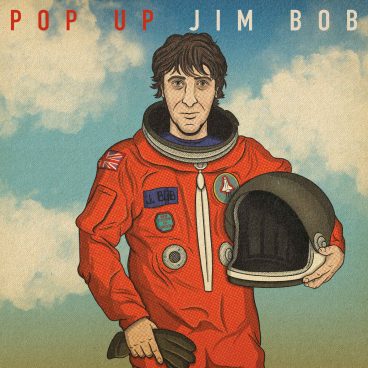Woodrow Wilson Guthrie’s folk songs chronicled the plight of American people during the Great Depression. With his debut album, Dust Bowl Ballads – considered retrospectively to be the first ever concept album – he became one of the nation’s leading spokesmen for labour rights; he was an anti-fascist, anti-racist iconoclast determined to debunk the myth of the American Dream.
The fight against the Right Wing was his life’s work; if you know one thing about Woody Guthrie it’s the message written on his guitar: “This Machine Kills Fascists”. And in the 1940s, that fight became a very real one. Some of the unashamedly propagandist lyrics of Tear the Fascists Down seem deluded today – in particular Guthrie’s implied support for Uncle Sam’s allies, Joseph Stalin and Chiang Kai-shek – but Guthrie kept his message simple: the enemy of our enemy is our friend and victory can come only through unity. “Hitler told the world around he would tear our union down,” he sang, “But our union’s gonna break them slavery chains.
Best known for his song This Land is Your Land, Guthrie was a lifelong socialist who believed in using music to make real and lasting social change, to take power away from a privileged, wealthy few and give it to the masses. Privately he would digest great works of political theory, but his own work spoke directly to ordinary people in words they could understand and metaphors they could recognise, from box car rail riders to migrant fruit pickers to outlaws.
And his message to listeners above all else was that they were more powerful than the wealthy and the privileged; that honest, hard-working people held the true power in the country he loved so much. And he came to believe the same thing about the global struggle against fascist dictators. All the people needed to do was unite in a common cause to take back what was rightfully theirs. As he sang in an epic folk ballad that recalls the triumphs of the underdog from biblical times through the ancient world right up to the 20th Century: “I fought the greatest leaders and I licked them every one / And that was about the biggest thing that man had ever done.”
Before the Second World War, Guthrie had believed that war was a political game played by world leaders in which soldiers were used as cannon fodder. But in the early 1940s he completely reversed his opinion. The bombing of Pearl Harbour and Hitler’s invasion of the Soviet Union convinced Guthrie that he needed to be a part of the fight for freedom. He joined up and served in the US Army and did three tours with the Merchant Marines, twice getting torpedoed while in active service, although he never saw combat himself.
Always prolific throughout his career, Guthrie was even more industrious during wartime, writing literally hundreds of anti-Hitler propaganda songs and historical ballads. At the time, Guthrie wrote to his second wife, Marjorie Mazia, that his own personal war against fascism was born out of “a personal hate so strong that it makes you want to kill in order to keep the people you love from being slaves… because if you really love anybody or anything or any principle or any science or belief, you will hate, hate, hate, and keep hating anybody or anything that tries to hurt, or kill or destroy that which you love. Unless love has got this hate, it’s not love at all, it’s a cave full of mysticism, and one of the most dangerous forms of cowardice”.
Learn More About Woody Guthrie Here:
Digging this? Check out our article on: 13 Playlists: The Best Halloween Music For Your Halloween Party






